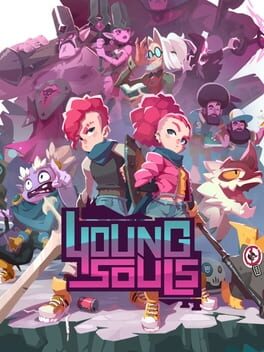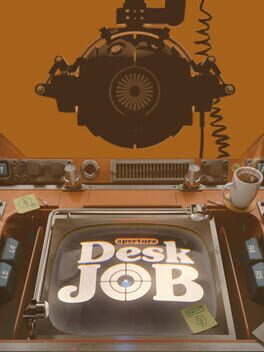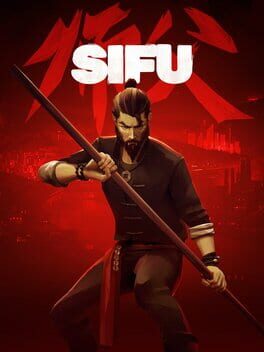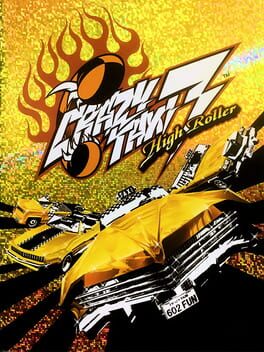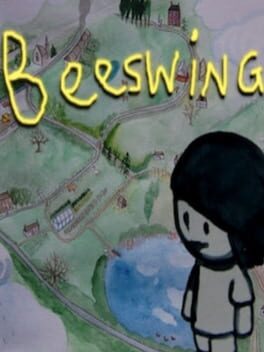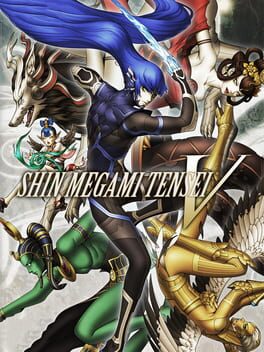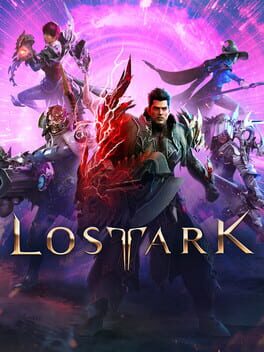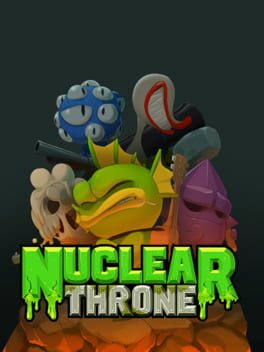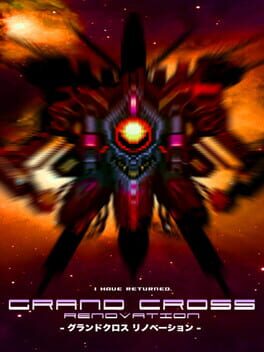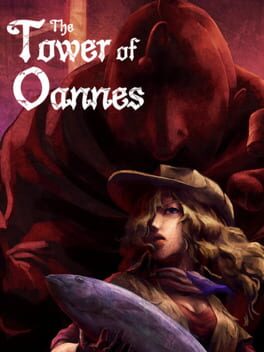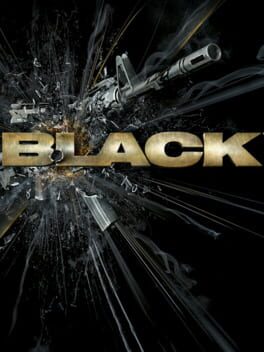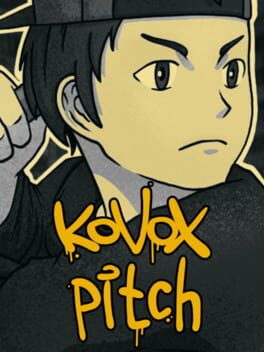BeachEpisode
2022
Surprisingly smart little game! Uses Link's Awakening's skeletal structure as a somewhat perfunctory platform to host Tunic's core puzzle-solving strengths, which come from the way it delicately divulges new information to the player for them to intuit and patch together. The in-game manual conceit really is an enlightened touch, what a wonderful way to avoid tutorialisation by lightly suggesting mechanics and prompts in a freeform way. A new star in my eye forms every time a game nudges me into realising a shortcut or mechanic has ALWAYS been there, I just wasn't aware yet. The combat serves as an occasional hurdle against progress in a way I just found detracting to the experience. For as rough as it is, it neither needs to be as present nor as bafflingly demanding lol.
Still, I enjoyed this a lot. The closest comparison I can think of on a whim would be Fez, another game filled with micro and macro puzzles that near-wordlessly demand intuition and perception on the part of the player. Lifeformed is on the 1s and 2s for this soundtrack btw! Mostly just ambiance without the Dustforce killer, but I missed that guy.
Still, I enjoyed this a lot. The closest comparison I can think of on a whim would be Fez, another game filled with micro and macro puzzles that near-wordlessly demand intuition and perception on the part of the player. Lifeformed is on the 1s and 2s for this soundtrack btw! Mostly just ambiance without the Dustforce killer, but I missed that guy.
2021
Earnestly clumsy in its story beats, lovingly realised w/ some frankly stunning artistic direction and craft, horny, kind of thin on anything substantive. The Frenchgaming Experience.
I must have played a demo for this at a convention in... 2015? 2016? It's been in the oven for a very long time, but I can't say the finished product particularly reflects that. Young Souls is a threadbare RPG beat-em-up that lacks much pizazz, aside from a few mechanical variances in its short runtime. Despite its armory of different weapon and tool types to choose from, you're typically pushed to choose whichever item in your inventory has the highest stat increment. Much appreciated the attempt at a homely town hub with a recurring set of characters, the Splatoon influence in its shop and upgrade design is unsubtle lol.
Completed in a sitting via couch co-op, which is nice!
Vanillaware are refusing to click "File > Export to... > PC" for Dragon's Crown, so this is the kind of ration that mercifully slides under my cell door once in a blue moon, I'm too hungry to complain.
I must have played a demo for this at a convention in... 2015? 2016? It's been in the oven for a very long time, but I can't say the finished product particularly reflects that. Young Souls is a threadbare RPG beat-em-up that lacks much pizazz, aside from a few mechanical variances in its short runtime. Despite its armory of different weapon and tool types to choose from, you're typically pushed to choose whichever item in your inventory has the highest stat increment. Much appreciated the attempt at a homely town hub with a recurring set of characters, the Splatoon influence in its shop and upgrade design is unsubtle lol.
Completed in a sitting via couch co-op, which is nice!
Vanillaware are refusing to click "File > Export to... > PC" for Dragon's Crown, so this is the kind of ration that mercifully slides under my cell door once in a blue moon, I'm too hungry to complain.
2022
When Demon’s Souls released in 2009, I was going through a pretty hard crisis of faith regarding videogames. I had grown old enough to finally see their limits, the industry-imposed repetition and condescention in their design, the corners that have to be cut and padded. I blindly took the advice from a few raving cynics I aligned myself with and imported Demon’s Souls from America as a last shot before I defiantly moved on from the medium like the little drama queen I was. DeS was exactly the game I needed, I had never played anything else like it, I had my mind shattered by the way the bosses in the title weren’t so much battles as they were puzzle boxes - imposing small situations to solve, being asked to find the lone small thread that will make the beast unravel. It felt like a NeverEnding Story adventure or something, I loved it, I still do.
With every new Fromsoft game, Hidetaka Miyazaki takes the opportunity to twist the dial even further from Adventure Fantasy to Battle Fantasy, the focus becoming more oriented around a type of mechanisation I personally find diagnostic-feeling, much less fulfilling - stat optimising and gear building, rote memorisation of excruciatingly difficult boss movesets. Very disenchanting open world too; everything in every corner is there to make your character more powerful, a handful of “types” of dungeon/outpost, a truly memetic core routine that made me feel like I was just playing Genshin Impact. This is obviously just a preference thing, but you must forgive me for feeling a little left behind.
There is a lot beauty in Elden Ring’s world, if I had anyone to thank for giving me the desire to trudge through this game to the end, it’ll be the stellar art and design team. Some of the most stunning locales I’ve seen in a minute; I’m particularly fond of miquellas haligtree, crumbling farum azula, and even revisiting Radahn’s arena post-battle for a taste of what I’d personally hoped exploring Elden Ring’s open world would feel like. The monster designs are nuts too, some skirting the perfect balance between recognisable and grotesque to lend some genuine unease.
Elden Ring is a fantastic game, just not a game for me. It actually gives me a little tinge of sadness to play a Fromsoft title and be made to think “this reminds me of another game” so many times. I respect the player-hostility maximalism of the bosses and the dizzying open-endedness of character builds - and in all honestly, Elden Ring very clearly has some of the richest thematic storytelling across the Miyazaki platter right now - I would just rather watch people snap the game over their knee on Youtube than ever play this again.
With every new Fromsoft game, Hidetaka Miyazaki takes the opportunity to twist the dial even further from Adventure Fantasy to Battle Fantasy, the focus becoming more oriented around a type of mechanisation I personally find diagnostic-feeling, much less fulfilling - stat optimising and gear building, rote memorisation of excruciatingly difficult boss movesets. Very disenchanting open world too; everything in every corner is there to make your character more powerful, a handful of “types” of dungeon/outpost, a truly memetic core routine that made me feel like I was just playing Genshin Impact. This is obviously just a preference thing, but you must forgive me for feeling a little left behind.
There is a lot beauty in Elden Ring’s world, if I had anyone to thank for giving me the desire to trudge through this game to the end, it’ll be the stellar art and design team. Some of the most stunning locales I’ve seen in a minute; I’m particularly fond of miquellas haligtree, crumbling farum azula, and even revisiting Radahn’s arena post-battle for a taste of what I’d personally hoped exploring Elden Ring’s open world would feel like. The monster designs are nuts too, some skirting the perfect balance between recognisable and grotesque to lend some genuine unease.
Elden Ring is a fantastic game, just not a game for me. It actually gives me a little tinge of sadness to play a Fromsoft title and be made to think “this reminds me of another game” so many times. I respect the player-hostility maximalism of the bosses and the dizzying open-endedness of character builds - and in all honestly, Elden Ring very clearly has some of the richest thematic storytelling across the Miyazaki platter right now - I would just rather watch people snap the game over their knee on Youtube than ever play this again.
2022
I'm of the mind that game controllers are rife with untapped potential to an almost comical degree; even our two-analogue + two-shoulder-triggers (etc.) standard exemplified across every major system for the past couple of decades has plenty of wriggle room to prove themselves as fructuous user interfaces, as platforms for expression and experimentation. How often are games elevated by you using an input and receiving a response you didn't quite expect, when a title is brave enough to break out of muscle-memory-worn tradition? Why are we always using the right analogue stick for the camera when God Hand demonstrated that it could be used as an omnidirectional dodge? Bumpers piss me off too, it always feels like the part games fall back on when they run out of face buttons.
Aperture Desk Job is a hardware showcase for the Steam Deck, placing the player behind a desk filled with buttons and knobs that represent an abstracted control pad, more specifically the Steam Deck button layout. but I'm honestly not sure what it's so proud of, what it's even flaunting. When all comes down to it, the game seems satisfied to give you another simulation where the left stick "moves" the player, you ready a reticle with the left trigger, and shoot with the right. It even demonstrates with a quippy section that deviations from this, let's face it, trite format are nothing more than "overengineered" amalgams begging for failure. I honestly am a little disappointed in Valve for this. While I definitely think the Steam Deck is one of the best pieces of handheld gaming hardware on the market, it doesn't do anything for interactivity the Switch doesn't do - the WiiU gamepad didn't do. Hell, the fucking Nvidia Shield.
Which, I wanna stress, is fine. I love the Steam Deck lol, it's a relatively uncomplicated means to play my Steam library "on the go" (bed), I love the freedom and the ergonomics of the pad itself are wildly comfortable. It serves its purpose just fine - it's just why I'm a little confused by... this? It does nothing, and despite reprising a fan-favourite role, it also says nothing. I wasn't even necessarily expecting Valve's take on Astro's Playroom, I simply had hoped that their generally forward-thinking design ethos would unravel a hidden truth or two, especially since they had the confidence to release this on regular PCs as well.
Oh well, it's nice to hear little motifs from the Portal 2 soundtrack again, gave me the tingles.
Aperture Desk Job is a hardware showcase for the Steam Deck, placing the player behind a desk filled with buttons and knobs that represent an abstracted control pad, more specifically the Steam Deck button layout. but I'm honestly not sure what it's so proud of, what it's even flaunting. When all comes down to it, the game seems satisfied to give you another simulation where the left stick "moves" the player, you ready a reticle with the left trigger, and shoot with the right. It even demonstrates with a quippy section that deviations from this, let's face it, trite format are nothing more than "overengineered" amalgams begging for failure. I honestly am a little disappointed in Valve for this. While I definitely think the Steam Deck is one of the best pieces of handheld gaming hardware on the market, it doesn't do anything for interactivity the Switch doesn't do - the WiiU gamepad didn't do. Hell, the fucking Nvidia Shield.
Which, I wanna stress, is fine. I love the Steam Deck lol, it's a relatively uncomplicated means to play my Steam library "on the go" (bed), I love the freedom and the ergonomics of the pad itself are wildly comfortable. It serves its purpose just fine - it's just why I'm a little confused by... this? It does nothing, and despite reprising a fan-favourite role, it also says nothing. I wasn't even necessarily expecting Valve's take on Astro's Playroom, I simply had hoped that their generally forward-thinking design ethos would unravel a hidden truth or two, especially since they had the confidence to release this on regular PCs as well.
Oh well, it's nice to hear little motifs from the Portal 2 soundtrack again, gave me the tingles.
2022
"Maybe life is like a ride on a freeway
Dodging bullets while you're trying to find your way" -unnamed polymath
I know I'm not the only person caught unaware of how they made not only one, but TWO mainline sequels to the Crazy Taxi series. While they may not be fully souped-up reimaginings, Crazy Taxi 2 and 3 contain all of the content in the prior entry plus a little more, it's a little more apt to think of these as expansion packs. What this mercifully does is maintain the lean and mean purity of the breakout title and sprinkle in a handful more options and maps for just the right amount of variety and personalisation.
The most standout addition in these expansions for me is the jump button, it's wild how much this shakes up your approach to the West Coast you'd otherwise be nailed to the ground for. With the ability to scale buildings and a sense of mastery of the course, it's insanely satisfying to defy the will of the sat-nav and take batshit and overly-direct routes to a dropoff point. I particularly love pulling off a crazy boost and landing on top of a highrise in the middle of nowhere and finding that the developers had the foresight to put a hidden customer there as a little treat. This is kind of fucking amazing. Unfettered videogames. The moment I understand how the fuck you're supposed to pull off a Crazy Drift it's over for you all.
If ever you feel the meter calling, the PC version of the game is easily available in a simple google search. Be sure to use the CT3Tweaks fan patch that adds certain optimisations, greater framerate and resolution support. The soundtrack is kind of hilariously bad but it's all stored in the root folder as .ogg files and I'm sure it'll be no problem to customise yourself.
Dodging bullets while you're trying to find your way" -unnamed polymath
I know I'm not the only person caught unaware of how they made not only one, but TWO mainline sequels to the Crazy Taxi series. While they may not be fully souped-up reimaginings, Crazy Taxi 2 and 3 contain all of the content in the prior entry plus a little more, it's a little more apt to think of these as expansion packs. What this mercifully does is maintain the lean and mean purity of the breakout title and sprinkle in a handful more options and maps for just the right amount of variety and personalisation.
The most standout addition in these expansions for me is the jump button, it's wild how much this shakes up your approach to the West Coast you'd otherwise be nailed to the ground for. With the ability to scale buildings and a sense of mastery of the course, it's insanely satisfying to defy the will of the sat-nav and take batshit and overly-direct routes to a dropoff point. I particularly love pulling off a crazy boost and landing on top of a highrise in the middle of nowhere and finding that the developers had the foresight to put a hidden customer there as a little treat. This is kind of fucking amazing. Unfettered videogames. The moment I understand how the fuck you're supposed to pull off a Crazy Drift it's over for you all.
If ever you feel the meter calling, the PC version of the game is easily available in a simple google search. Be sure to use the CT3Tweaks fan patch that adds certain optimisations, greater framerate and resolution support. The soundtrack is kind of hilariously bad but it's all stored in the root folder as .ogg files and I'm sure it'll be no problem to customise yourself.
2014
"A good tree has victims".
Stare close enough at the screen and you start to see the human hands appreciatively building every one of Beeswing's vignettes. I was thoroughly not expecting a game to understand, to so deftly and honestly articulate grief, nostalgia and mending. Beeswing is just honest, It’s not trying to impress anyone or manipulate them into feeling something, it simply wishes to exist - just as its inhabitants live quietly near and far from their loved ones, opening up to anyone who'll listen. Beeswing isn’t sad, but it isn’t happy either. It recounts the lives of (I assume) people the developer knew growing up with a plain biographical melancholy that is difficult to properly explain. I’m so used to media recounting horrible events, making me depressed for the sake of a narrative that’s supposed to mean something. But Beeswing never tried to bring me down, in fact it’s so clean in its indifference to how the player feels that it would seem cold if not for how tangible and raw the things it says and the way it shows you them are. A recurring motif in this game in itself is this kind of honesty, not necessarily to "make the most" of our limited time on this earth, but to live true - to yourselves and others, as it's the greatest way to reciprocate love.
Stare close enough at the screen and you start to see the human hands appreciatively building every one of Beeswing's vignettes. I was thoroughly not expecting a game to understand, to so deftly and honestly articulate grief, nostalgia and mending. Beeswing is just honest, It’s not trying to impress anyone or manipulate them into feeling something, it simply wishes to exist - just as its inhabitants live quietly near and far from their loved ones, opening up to anyone who'll listen. Beeswing isn’t sad, but it isn’t happy either. It recounts the lives of (I assume) people the developer knew growing up with a plain biographical melancholy that is difficult to properly explain. I’m so used to media recounting horrible events, making me depressed for the sake of a narrative that’s supposed to mean something. But Beeswing never tried to bring me down, in fact it’s so clean in its indifference to how the player feels that it would seem cold if not for how tangible and raw the things it says and the way it shows you them are. A recurring motif in this game in itself is this kind of honesty, not necessarily to "make the most" of our limited time on this earth, but to live true - to yourselves and others, as it's the greatest way to reciprocate love.
2021
I bought a Switch back in 2017 to play this game and ended up just emulating it instead. I am God’s most faithful warrior.
Ultimately disappointed with this. The game shines brightest when you’re battling or even just thinking about battling - stitching together the most insane plans and just barely clutching engagements out, trying to stay afloat in the seemingly endless torrent of class composition options. It’s riveting, goes from strength to strength, hands down the most electrifying I’ve ever found a turn-based game.
Ryota Kozuka and his wind chimes are the mvps currently at Atlus right now because his soundtracks are unbelievable, so brimming with life and variety, even incidental music is many and memorable. I particularly ADORED how the soundtrack would react according to your current position in a district; sometimes reacting by changing channels in accordance to your footing or altitude or something. When you reach the train yard in the first zone and the wailing guitars kick in oooo mama…
The things that drag the game down for me is frankly just about everything else, Atlus games are so good at just being fucking min-maxed now to the point where I love only a handful of things about them and the rest is wretched. The more I think about the story, the more confused and annoyed I get lol. The game just has nothing to say, it just prattles on in broad, poorly defined strokes, rife with flowery terminology carefully chosen to throw you off the scent that the story isn’t able to give an extra dimension to the typical monotheism vs. polytheism conflict. What the fuck even is “knowledge” what the fuck is the “mandella system” among other concepts introduced at the eleventh hour. The Nahobino thing is a misfire for me too, largely because I see their bizarre fabric as a misstep uncharacteristic of what I know of SMT (only played 3 and DDS). I like to think that the games are able to demonstrate a fair amount of reverence to the mythologies they take copious amounts of inspiration from, and I can take inaccuracies a lot more happily than I can the whole idea of these demons of yore needing Doi-ified sentai OCs to become their “true form” lol it’s just so skeevy. I suppose, more to the point, is that this is the first time I’ve seen SMT feel the need to bend under the “burden” of mythology, and I hate to see it. This would all go down a lot better if it was contextualised any more than the absolute bare minimum - just about the only time you see the themes of the game recapitulated in the contemporary world is in the thin cutscene depicting school bullying. The absence of humanity here made it just so hard for me to care, I lost so much steam come the midpoint of the game. These people aren’t my friends, they’re acquaintances, and having to kill them feels like I’m doing the rote motions because I’m in an SMT game.
Without much of a drive to really pull through the game besides its generally stellar presentation and combat, my face would plummet each and every time I had to traverse the world map. I get it, I see the appeal, it just does my head in. Spending so much of the game running across tediously littered sandy terrain, decorated almost solely with the same handfuls of blown-out ruined buildings. I had my dopamine receptors removed in a tragic taffy pulling accident, I get nothing from collecting korok seeds and opening chests.
Pure projection here but there was a confidence and handcrafted sense of purpose to when the PS2 SMTs would have relatively tight and windy corridors or limited vignettes with stunning baked-in texturing. All you get is a vast and desolate Unreal Engine-scape with (admittedly stunning looking) SMT models dotted around with no attempt for them to inhabit the world in any holistic sense. I’d even rather have random battles back than have the stupid looking pockets of enemies clumsily circling their patrol zones.
I mean, it’s not all bad. The things that “matter” are good, namely the core gameplay loop being a very clean modernised open-world affair with best-in-class tb combat. Cutscene Skippers are probably buzzing abt this game in particular. I just had hoped this would be a leaner, meaner project.
Ultimately disappointed with this. The game shines brightest when you’re battling or even just thinking about battling - stitching together the most insane plans and just barely clutching engagements out, trying to stay afloat in the seemingly endless torrent of class composition options. It’s riveting, goes from strength to strength, hands down the most electrifying I’ve ever found a turn-based game.
Ryota Kozuka and his wind chimes are the mvps currently at Atlus right now because his soundtracks are unbelievable, so brimming with life and variety, even incidental music is many and memorable. I particularly ADORED how the soundtrack would react according to your current position in a district; sometimes reacting by changing channels in accordance to your footing or altitude or something. When you reach the train yard in the first zone and the wailing guitars kick in oooo mama…
The things that drag the game down for me is frankly just about everything else, Atlus games are so good at just being fucking min-maxed now to the point where I love only a handful of things about them and the rest is wretched. The more I think about the story, the more confused and annoyed I get lol. The game just has nothing to say, it just prattles on in broad, poorly defined strokes, rife with flowery terminology carefully chosen to throw you off the scent that the story isn’t able to give an extra dimension to the typical monotheism vs. polytheism conflict. What the fuck even is “knowledge” what the fuck is the “mandella system” among other concepts introduced at the eleventh hour. The Nahobino thing is a misfire for me too, largely because I see their bizarre fabric as a misstep uncharacteristic of what I know of SMT (only played 3 and DDS). I like to think that the games are able to demonstrate a fair amount of reverence to the mythologies they take copious amounts of inspiration from, and I can take inaccuracies a lot more happily than I can the whole idea of these demons of yore needing Doi-ified sentai OCs to become their “true form” lol it’s just so skeevy. I suppose, more to the point, is that this is the first time I’ve seen SMT feel the need to bend under the “burden” of mythology, and I hate to see it. This would all go down a lot better if it was contextualised any more than the absolute bare minimum - just about the only time you see the themes of the game recapitulated in the contemporary world is in the thin cutscene depicting school bullying. The absence of humanity here made it just so hard for me to care, I lost so much steam come the midpoint of the game. These people aren’t my friends, they’re acquaintances, and having to kill them feels like I’m doing the rote motions because I’m in an SMT game.
Without much of a drive to really pull through the game besides its generally stellar presentation and combat, my face would plummet each and every time I had to traverse the world map. I get it, I see the appeal, it just does my head in. Spending so much of the game running across tediously littered sandy terrain, decorated almost solely with the same handfuls of blown-out ruined buildings. I had my dopamine receptors removed in a tragic taffy pulling accident, I get nothing from collecting korok seeds and opening chests.
Pure projection here but there was a confidence and handcrafted sense of purpose to when the PS2 SMTs would have relatively tight and windy corridors or limited vignettes with stunning baked-in texturing. All you get is a vast and desolate Unreal Engine-scape with (admittedly stunning looking) SMT models dotted around with no attempt for them to inhabit the world in any holistic sense. I’d even rather have random battles back than have the stupid looking pockets of enemies clumsily circling their patrol zones.
I mean, it’s not all bad. The things that “matter” are good, namely the core gameplay loop being a very clean modernised open-world affair with best-in-class tb combat. Cutscene Skippers are probably buzzing abt this game in particular. I just had hoped this would be a leaner, meaner project.
2018
I honestly don't know if this will so much be a review of a playthrough in progress - subject to change as I make my way towards endgame, or will essentially outline the problems I'll continue have with the game indefinitely going forward. For some dubious reason it’s managed to sink its hooks in me and I’m keen to see where things go. (update: i give up lol. they refuse to upgrade their EU servers and this game is simply not worth the 6-hour queue time. eat my entire shit)
Lost Ark features one of the most dripless, uncharismatic settings and stories I've ever seen, it's fascinating how ungrounded it manages to feel throughout, no matter how many varied locales and beats it drags me through. On top of a frankly dire localisation, there really is just no theming here to ground anything. It's not even just that it's ultra-generic fantasy, as you leave the starting zone to begin exploring other islands and continents, settings vary wildly. From a Chinese xianxia-inspired gladiatorial island, tropical island where you drink an Arthur and the Invisibles shrinking potion, and I've arrived at a mecha desert continent with a city that is essentially MIdgar. The variety is definitely here, and there are instances that make good use of them in the sense that presentation here is generally top-notch. The camera will make cinematic movements through dungeons at points as grandiose setpieces do their thing in the background, it does a pretty good job at pretending it isn’t a top-down ARPG-inspired joint. One of the highlights so far has been one of the dungeons in the shrunken zone, where you’re walking across tables in a pirate camp as they stab their maps and spill bottles. The problem really is that I’m 100% certain the director is just copying One Piece and forgot to implement any levity or even pathos (it’s very funny when a painfully unconvincing “sad” sequence happens and the main story quest won’t progress until you stand in a certain spot and use a /cry emote). It just hurtles at a noticeably disinterested pace through its own ideas, introducing you to hundreds of characters that are all written like shit and exist to open doors for you to the next toy the director will eventually throw out of the pram.
I chose the Bard for my class, because by the game’s own admission it’s apparently the most difficult to play of the suite of guys. ARPGs are a genre I’ve always struggled with, especially Diablo-likes where you just click on swarms of approaching hitboxes until they turn into red mist forever as their health values slowly increase in perfect sync with your gear’s damage output, I was hoping the mechanical difficulty of a slightly gubbed support class and the general sense that I’m skinner boxing in a world filled with other rats in the same maze would help me out. In a sense, it is - it’s nice to look at the world chat and see emote spam, people notifying the zone that a world boss called Willi Willi has respawned by dryly saying “Willi up”, as well as that trademark EU data center racism. The combat here is functional I guess, my bard has about twenty skills for me to choose from, complete with Diablo 3-esque runes for me to alter certain properties, but I’ve done fine sticking to a handful that turn the hoards into mulch with low effort. Dungeons have the most boring kind of modular, numerical difficulty options for better gear, but I wouldn’t roll out of bed for that if it was on fire. I know for sure I’m not getting the most out of the game mechanically because the localisation does a frankly dogshit job at explaining its systems well. After a certain point in the story it dumps a ton of gear nuances and crafting mechanics on you all at once and it nearly drove me insane reading its indecipherable prattle.
Ultimately this just feels like a souped-up Ragnarok Online. The Korean MMO hallmarks are all here, the spectre of inevitable grind looms over so many unhideable UI elements - bars to fill and percentages to tick up (this thing even has the nerve to hide Korok seeds out of geometry). My modern MMO experience is squarely on FFXIV but I really only appreciate how that game doesn’t have a glowing shopping cart button onscreen at all times when you play essentially any other MMO - Lost Ark is a casino and a skinner box first and foremost, a game second. It boggles the fucking mind how this game essentially demands you to level up alts with its oh-so-generous server-wide “roster” buff system. The levelling process here is painstakingly railroaded - killing enemies gives 1/10000 of the exp of a quest, of which you’re completing in a choreographed straight line through a continent every few minutes. There is no player expression or true variety, and the exploration is pure smoke & mirrors. You’re here for one reason and one reason only, constantly trickle in money so you can Boost through the tedium. There’s not even one lost ark, there are like seven..
When Guild Wars 2 was in early development, ArenaNet considered not having "leveling" at all--just no concept of "level" in the game whatsoever. Looking at GW2 as it is now, it's easy to see how that could've worked. You'd explore the world to get skill points to unlock your skills and traits, but you wouldn't have to worry about filling your EXP bar to hit arbitrary milestones that make your numbers go up. And given how GW2 now throws full level-up books and level boosts at you these days, honestly I think they should've stuck with that idea. It's hard for me not to look at Lost Ark with a similar lens. The levelling experience doesn't seem to accomplish anything (you even start at level 10, and immediately choose your advanced role). The levelling system works in a game with fixed classes and a strong narrative thrust like FFXIV, but Lost Ark is a game that promises a seafaring adventure, that instead has its levels arbitrarily introduce the world for you. I want to strip numbers out of games so fucking bad dude.
Lost Ark features one of the most dripless, uncharismatic settings and stories I've ever seen, it's fascinating how ungrounded it manages to feel throughout, no matter how many varied locales and beats it drags me through. On top of a frankly dire localisation, there really is just no theming here to ground anything. It's not even just that it's ultra-generic fantasy, as you leave the starting zone to begin exploring other islands and continents, settings vary wildly. From a Chinese xianxia-inspired gladiatorial island, tropical island where you drink an Arthur and the Invisibles shrinking potion, and I've arrived at a mecha desert continent with a city that is essentially MIdgar. The variety is definitely here, and there are instances that make good use of them in the sense that presentation here is generally top-notch. The camera will make cinematic movements through dungeons at points as grandiose setpieces do their thing in the background, it does a pretty good job at pretending it isn’t a top-down ARPG-inspired joint. One of the highlights so far has been one of the dungeons in the shrunken zone, where you’re walking across tables in a pirate camp as they stab their maps and spill bottles. The problem really is that I’m 100% certain the director is just copying One Piece and forgot to implement any levity or even pathos (it’s very funny when a painfully unconvincing “sad” sequence happens and the main story quest won’t progress until you stand in a certain spot and use a /cry emote). It just hurtles at a noticeably disinterested pace through its own ideas, introducing you to hundreds of characters that are all written like shit and exist to open doors for you to the next toy the director will eventually throw out of the pram.
I chose the Bard for my class, because by the game’s own admission it’s apparently the most difficult to play of the suite of guys. ARPGs are a genre I’ve always struggled with, especially Diablo-likes where you just click on swarms of approaching hitboxes until they turn into red mist forever as their health values slowly increase in perfect sync with your gear’s damage output, I was hoping the mechanical difficulty of a slightly gubbed support class and the general sense that I’m skinner boxing in a world filled with other rats in the same maze would help me out. In a sense, it is - it’s nice to look at the world chat and see emote spam, people notifying the zone that a world boss called Willi Willi has respawned by dryly saying “Willi up”, as well as that trademark EU data center racism. The combat here is functional I guess, my bard has about twenty skills for me to choose from, complete with Diablo 3-esque runes for me to alter certain properties, but I’ve done fine sticking to a handful that turn the hoards into mulch with low effort. Dungeons have the most boring kind of modular, numerical difficulty options for better gear, but I wouldn’t roll out of bed for that if it was on fire. I know for sure I’m not getting the most out of the game mechanically because the localisation does a frankly dogshit job at explaining its systems well. After a certain point in the story it dumps a ton of gear nuances and crafting mechanics on you all at once and it nearly drove me insane reading its indecipherable prattle.
Ultimately this just feels like a souped-up Ragnarok Online. The Korean MMO hallmarks are all here, the spectre of inevitable grind looms over so many unhideable UI elements - bars to fill and percentages to tick up (this thing even has the nerve to hide Korok seeds out of geometry). My modern MMO experience is squarely on FFXIV but I really only appreciate how that game doesn’t have a glowing shopping cart button onscreen at all times when you play essentially any other MMO - Lost Ark is a casino and a skinner box first and foremost, a game second. It boggles the fucking mind how this game essentially demands you to level up alts with its oh-so-generous server-wide “roster” buff system. The levelling process here is painstakingly railroaded - killing enemies gives 1/10000 of the exp of a quest, of which you’re completing in a choreographed straight line through a continent every few minutes. There is no player expression or true variety, and the exploration is pure smoke & mirrors. You’re here for one reason and one reason only, constantly trickle in money so you can Boost through the tedium. There’s not even one lost ark, there are like seven..
When Guild Wars 2 was in early development, ArenaNet considered not having "leveling" at all--just no concept of "level" in the game whatsoever. Looking at GW2 as it is now, it's easy to see how that could've worked. You'd explore the world to get skill points to unlock your skills and traits, but you wouldn't have to worry about filling your EXP bar to hit arbitrary milestones that make your numbers go up. And given how GW2 now throws full level-up books and level boosts at you these days, honestly I think they should've stuck with that idea. It's hard for me not to look at Lost Ark with a similar lens. The levelling experience doesn't seem to accomplish anything (you even start at level 10, and immediately choose your advanced role). The levelling system works in a game with fixed classes and a strong narrative thrust like FFXIV, but Lost Ark is a game that promises a seafaring adventure, that instead has its levels arbitrarily introduce the world for you. I want to strip numbers out of games so fucking bad dude.
2015
A kaleidoscope of explosion .gifs. Where this game fails at being a particularly mechanically engaging shmup, or even all that difficult, it excels(?) at festooning the screen with information laced with utterly extraneous action and special effects. To say this game puts its presentation above all else is an understatement, hardcore Heralds of the Shmup will no doubt be disappointed at the lack of precision-engineered scoring systems, mode variety or bullet patterns on offer here. I think that's what those guys care about.
More casual thrillseekers like myself are the target demographic for Grand Cross Renovation - the shmup genre for me is all about style and aggression, maintaining cool heads while the going gets rough and eeking through unfathomable odds, one small hitbox against every star in the sky. This game may not be particularly replayable, but it lent me a single unforgettable 50-minutes of wall-to-wall deus ex machina bull shit and I loved holding a controller through it with a face like a deer in the headlights. Features an incredible soundtrack that reacts dynamically to the action, too. It's all kind of a mess, but is crackling and pulsing with self-motivated enthusiasm, a freight train derailing and barreling through the setpiece factory.
I beg you not to play this game if you experience photosensitive epilepsy, it needs a fucking bright red warning at the cart.
More casual thrillseekers like myself are the target demographic for Grand Cross Renovation - the shmup genre for me is all about style and aggression, maintaining cool heads while the going gets rough and eeking through unfathomable odds, one small hitbox against every star in the sky. This game may not be particularly replayable, but it lent me a single unforgettable 50-minutes of wall-to-wall deus ex machina bull shit and I loved holding a controller through it with a face like a deer in the headlights. Features an incredible soundtrack that reacts dynamically to the action, too. It's all kind of a mess, but is crackling and pulsing with self-motivated enthusiasm, a freight train derailing and barreling through the setpiece factory.
I beg you not to play this game if you experience photosensitive epilepsy, it needs a fucking bright red warning at the cart.
La-Mulana 2's sole glaring omission present in the first entry was no doubt the Hell Temple - an out-of-the-way optional dungeon, leagues harder than anything else in the game. Punishing, borderline unfair masocore puzzle platforming, demanding the player makes smart use of the tools they've acquired on their main journey. Detestable stuff.
The very fact that you can purchase this DLC and spend days combing over the entire map with absolutely no idea how to even access the content should tell you all you need to know. Gets the ball rolling with unhinged puzzles that demand the knowledge of the world map's nichest details, and the ransom note just keeps on going through to the very end. As a longtime La-Mu fan, the way Oannes dishes out cruel gotcha moments by flipping the game's rules upside down sent me into laughing fits, and it never feels unbearable because there really is a sense of mastery to it all, as well as a generous checkpoint system.
I kind of forsee this to be the last piece of La-Mulana content to ever come out, it has a kind of "so long and thanks for all the fish" vibe going on I can't help but find very sweet. The way La-Mu 2 featured Eg-lana, Oannes let us visit the final unexplored area in 1's now 11 year old roadmap, you can't help but salute to the finality of it.
The very fact that you can purchase this DLC and spend days combing over the entire map with absolutely no idea how to even access the content should tell you all you need to know. Gets the ball rolling with unhinged puzzles that demand the knowledge of the world map's nichest details, and the ransom note just keeps on going through to the very end. As a longtime La-Mu fan, the way Oannes dishes out cruel gotcha moments by flipping the game's rules upside down sent me into laughing fits, and it never feels unbearable because there really is a sense of mastery to it all, as well as a generous checkpoint system.
I kind of forsee this to be the last piece of La-Mulana content to ever come out, it has a kind of "so long and thanks for all the fish" vibe going on I can't help but find very sweet. The way La-Mu 2 featured Eg-lana, Oannes let us visit the final unexplored area in 1's now 11 year old roadmap, you can't help but salute to the finality of it.
2006
In "BLACK", you get a gun and can shoot people. Instead of seeing your character from behind or above, you see through their eyes, in a "first-person" perspective. A key feature this title is interactivity - for the first time, gamers will be able to press L1 instead of simply pressing Right Click to zoom in and out.
I'll admit to going into this a feeling little hopeful. The general consensus for nearly two decades now is that it was a pretty solid console fps, and I was eager to see how well Criterion managed the break away from their signature dish of highly destructive vehicular combat.
If any facet of Black whatsoever were even a little impressive, it's that they managed to create some surprisingly destructive environments for gen 6 hardware to chug away at. Enough smoke and particle effects to satiate a PS5 owner. The rest is just wretched lol. Character engagement feels like exploring the deep sea w/ these controls, input delay and general poor performance, and the levels themselves are about as disinterestedly laid out as possible despite being made of spit and paper. In no way surprised to learn that the connective story tissue in the form of grotesquely over-edited fmvs between levels was a last-minute addition. Interestingly the initial idea for relating the plot in-game was to have a radio-play-style voiceover spoken over a 'black'(oooh my god 😍😍) screen - would probably have been a little more interesting, but this is tedious enough as is. Let me drift a corner and wrap my car around a streetlamp or I'll just play Timesplitters instead.
I'll admit to going into this a feeling little hopeful. The general consensus for nearly two decades now is that it was a pretty solid console fps, and I was eager to see how well Criterion managed the break away from their signature dish of highly destructive vehicular combat.
If any facet of Black whatsoever were even a little impressive, it's that they managed to create some surprisingly destructive environments for gen 6 hardware to chug away at. Enough smoke and particle effects to satiate a PS5 owner. The rest is just wretched lol. Character engagement feels like exploring the deep sea w/ these controls, input delay and general poor performance, and the levels themselves are about as disinterestedly laid out as possible despite being made of spit and paper. In no way surprised to learn that the connective story tissue in the form of grotesquely over-edited fmvs between levels was a last-minute addition. Interestingly the initial idea for relating the plot in-game was to have a radio-play-style voiceover spoken over a 'black'(oooh my god 😍😍) screen - would probably have been a little more interesting, but this is tedious enough as is. Let me drift a corner and wrap my car around a streetlamp or I'll just play Timesplitters instead.
2022
There really is nothing quite like slipping into the flow state of a rhythm game, and Kovox Pitch's dedication to Russian post-punk music and lonely concrete afterglow lent me a solid hour of melancholic bliss. Not the most varied or challenging game in any sense, the setlist is noticeably small, songs tend to blend into one another, but it's fine - you're here for a very specific purpose; to vybe. Never before have I tuned the ambient stage audio to be exactly as loud as the music, the game really does have a special atmosphere with thanks not having too many moving parts. As much as I like overly glitzy and dazzling Bemani-grade rhythm games, they don't LEAVE me with much - Kovox Pitch's brief story mode ties the experience w/ a lovely bow akin to an emotional gutpunch and I'll carry the experience with me for a good long while I think!!!!!! Very sweet thing. Don't be mean to the voice acting.
1996
Part of a very specific genre of game I quite literally cannot fathom "working" outside of a 90's club chill-out room. You're on your comedown double fisting lucozades and you're hypnotised by the light reflecting off the dolphin's scalp as it explores homebrew Windows Media Player visualisers. There's some very loose gameplay here where you collect samples and edit songs but it's all very unconvincing, you're here to nurse your friend back to health as he's has too many Es and is chewing his lips off. Honestly, I'm easily swayed by any soundtrack that is predominately jungle techno or downtempo, and the headline act bein a dolphin. Played for 5 mins.

